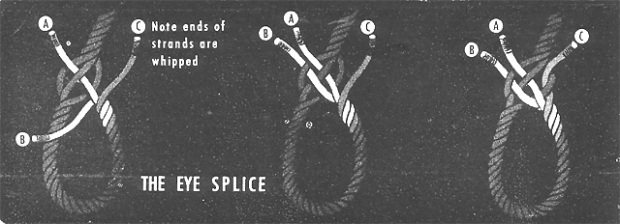
Now these are the nations that the LORD left, to test Israel by them, that is, all in Israel who had not experienced all the wars in Canaan. It was only in order that the generations of the people of Israel might know war, to teach war to those who had not known it before. These are the nations: the five lords of the Philistines and all the Canaanites and the Sidonians and the Hivites who lived on Mount Lebanon, from Mount Baal-hermon as far as Lebo-hamath. They were for the testing of Israel, to know whether Israel would obey the commandments of the LORD, which he commanded their fathers by the hand of Moses. Judges 3:1-4
I don’t like tests; I never have. Even if I had mastered the material for a test to be given in school, I still hated taking tests. Too much pressure. Sweaty palms. Racing heart. I still don’t like tests. But I’m learning that discipleship entails being tested by the Lord and I don’t necessarily like that.
Judges 3 informs us that Yahweh left many nations in the promised land precisely to test Israel and to teach men how to fight in battles. Of course, the Lord could have wiped out every enemy and made life easy and sweet for Israel. But Judges tells us that they were left for a reason: to teach war/to test Israel. It wasn’t that the boys in Israel did not know how to swing a sword. Every little boy learns that at an early age. Yahweh left these nations so that the Israelites would understand that a life devoted to Him involved a fight and struggle on their part and He graciously wanted to teach them that truth. As Daniel Block states:
“When Yahweh expresses his determination that the present generation of Israelites should learn war, his concern is not primarily that they learn how to conduct war but that they learn the nature and significance of this war. They have entered the land as Yahweh’s covenant people with the mandate to drive out the Canaanites and to claim it as his gift to them. The continued presence of the Canaanites represents a test whether they will accept Yahweh as their sovereign and their responsibilities in fulfilling his agenda. In accordance with earlier pronouncements (Deut 7:1-5), Yahweh will not do for Israel what they are not willing to do for themselves. The Canaanite nations represent not only a challenge to him and his historical program, but they also remain a test, proving whether or not Israel will accept her status as his covenant people, with all the privileges and obligations attached thereto. This generation needs to learn that they have been called to a holy war, that Yahweh is the commander-in-chief, and that the enemy is to be totally exterminated.” (Judges)
The Lord left the Canaanites precisely to keep reminding the people of Israel that they served Him, they were in a holy war against sin, and that they must work with Him to destroy their enemies. We can glean several applications from this passage:
1. God tests His children. We may not like this idea, but it is true. God never tempts us to sin (that comes from within us!), but He does test us.
Count it all joy, my brothers, when you meet trials of various kinds, for you know that the testing of your faith produces steadfastness…Blessed is the man who remains steadfast under trial, for when he has stood the test he will receive the crown of life, which God has promised to those who love him. Let no one say when he is tempted, “I am being tempted by God,” for God cannot be tempted with evil, and he himself tempts no one. But each person is tempted when he is lured and enticed by his own desire. James 1:2-3, 12-14
In this you rejoice, though now for a little while, if necessary, you have been grieved by various trials, so that the tested genuineness of your faith—more precious than gold that perishes though it is tested by fire—may be found to result in praise and glory and honor at the revelation of Jesus Christ… Beloved, do not be surprised at the fiery trial when it comes upon you to test you, as though something strange were happening to you. 1 Peter 1:6-7; 4;12
Are you experiencing tests and trials? Are you suffering? God may be testing you to see whether or not you “would obey the commandments of the LORD” (Judges 3:4). Don’t despise the trial and test. He is working for your good and His glory. How will you respond to the test?
2. God may not remove the temptation or trial. Wouldn’t we all love it if we had a promise in Scripture that went something like this: “Ask the Lord and He will remove all temptation to sin so that you never have to struggle with it again. Also, beloved, ask Him to take away all your trials and hardships and He will wave the magic wand of grace and give you an easy, care-free life.”
We don’t have a promise like that in God’s word. But what we do have is better! Read the promise given to Paul (and all God’s children!) as he struggled with his “thorn in the flesh” (whatever that was)-
So to keep me from becoming conceited because of the surpassing greatness of the revelations, a thorn was given me in the flesh, a messenger of Satan to harass me, to keep me from becoming conceited. Three times I pleaded with the Lord about this, that it should leave me. But he said to me, “My grace is sufficient for you, for my power is made perfect in weakness.” Therefore I will boast all the more gladly of my weaknesses, so that the power of Christ may rest upon me. For the sake of Christ, then, I am content with weaknesses, insults, hardships, persecutions, and calamities. For when I am weak, then I am strong. 2 Corinthians 12:7-10
We also have a promise that God will provide a way of escape out of temptation-
Therefore let anyone who thinks that he stands take heed lest he fall. No temptation has overtaken you that is not common to man. God is faithful, and he will not let you be tempted beyond your ability, but with the temptation he will also provide the way of escape, that you may be able to endure it. 1 Corinthians 10:12-13
When you are tempted to sin, look for the escape hatch. It’s there; God will provide it. Endure by His grace.
3. God has called us to make war on sin. Just as Israel was called to totally exterminate the enemy, we too are called to mortify sin. It never ends. The battle will continue until the day we die. One of my seminary professors once asked an elderly man what it was like being a Christian as a very old man. He replied, “The passions never die.” We will be making war on sin until the day we die. There is no “vacation” when it comes to putting sin to death.
Be encouraged today, brothers and sisters. God may not remove the test or the trial, but He will empower you by His grace to endure. Trust Him and keep obeying His word. God may not remove the temptation, but He will provide an escape route. Trust Him and keep obeying His word.
Still learning to take His tests and to make war on my sin,
Benji







